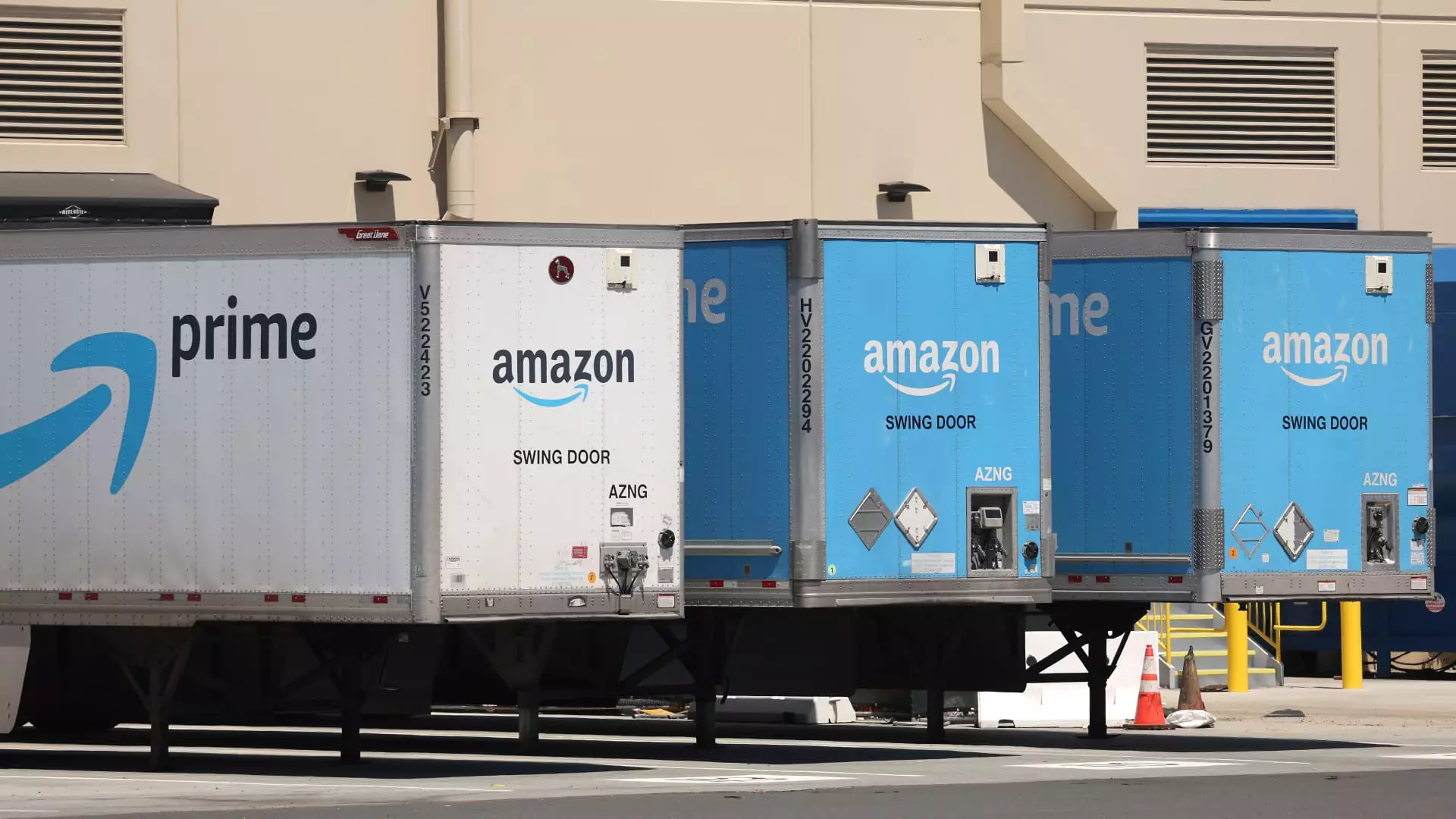In an alarming revelation, the Department of Justice (DOJ) has illuminated the shocking extent of organized crime’s infiltration into America’s logistics and supply chain sector, particularly targeting a giant like Amazon. Recent charges filed reveal that members part of an Armenian crime ring allegedly siphoned over $83 million in goods by masquerading as legitimate truck drivers. This transgression isn’t just a mere heist; it’s a brazen assault on the very foundation of commerce in today’s online-driven market. The audacity of these alleged thieves to exploit logistical vulnerabilities underscores a critical failing within our economic systems that demands urgent attention.
The Mechanics of Deception
Since 2021, these criminals have honed a meticulously crafted operation that capitalized on the intricacies of freight logistics. They weren’t just stealing—this was strategic operation management at its worst, leveraging established contractual frameworks to first gain access and then to divert significant quantities of merchandise, including consumer electronics and home appliances, to their own clandestine markets. The usage of legitimate trucking apps like Amazon Relay for procurement of freight routes reflects a sophisticated understanding of the industry’s operational mechanics. This level of cunning illuminates a frightening reality; organized crime is not only adapting but thriving in an increasingly complex economic landscape.
Amazon’s Battle Against Stealing Strikes
Amazon, often heralded as a pioneer of online retail, finds itself grappling with a scourge that could tarnish its reputation and operational efficacy. The DOJ’s complaint indicates that thefts labeled as “cargo theft” are haunting the retail titan, showcasing a broader trend that is not limited to Amazon but is endemic across retail sectors. The company’s attempts to fortify against these fraudulent practices have led to the suspension of multiple third-party sellers amid allegations of counterfeit goods; yet, the narrative complicates when sellers assert their unwitting involvement, rendering many businesses vulnerable to collateral damage. This toxic mix of opportunism and vulnerability paints a grim picture of today’s retail ecosystem.
A Financial Epidemic in the Making
Experts estimate that cargo theft-related losses plummet to nearly $1 billion annually, signaling a rampant epidemic that could shift the economic contours of the logistics industry. These figures not only affect hefty corporations like Amazon but also trickle down, threatening the livelihoods of small businesses caught in the crossfire. The ramifications ripple throughout the economy, raising questions about the adequacy of current protective measures against such organized schemes. As the DOJ navigates this labyrinthine case, one can’t help but ponder whether authorities are ever truly equipped to tackle such a formidable adversary, especially one that’s embraced modern technology and communication channels to operate.
Crime Orchestrated by Desperation
At the heart of this issue lies not just a group of criminals but a societal failure that has resulted in such a shocking disparity between wealth and opportunity. The defendants, linked to a host of other serious crimes—attempted murder, illegal firearms, healthcare fraud—paint a portrait of desperation manifested through organized crime. Their actions serve as a clarion call to society; it begs the question: Are we addressing the root causes of such criminality, or simply reacting to the consequences?
The government’s response, although necessary, often feels like a band-aid solution rather than a strategic, long-term approach to foiling the operational capabilities of these organized gangs. One cannot dismiss the fact that the legal and socio-economic frameworks in place are struggling, leaving companies like Amazon to fend for themselves against a backdrop of systemic issues.
The Need for a Systemic Overhaul
As we peel back the layers of this cargo theft saga, it becomes glaringly evident that the logistical bottle-neck that has allowed this crime wave to flourish calls for a systemic overhaul. These events reveal fundamental flaws in our approach to trade security, consumer trust, and corporate responsibility. Companies must prioritize transparency and accountability throughout their supply chains—not only to protect their profits but also to establish stronger, more resilient networks that deter criminal enterprises.
Amid the challenges presented by digital transformations and globalization, vigilance in safeguarding against sophisticated criminal operations is paramount. If we allow ourselves to be passive spectators, we risk normalizing these infringements on industry integrity, thus perpetuating a cycle of theft and distrust. The clash between organized crime and corporate giants is far from over, and the urgency for reforming logistics security could not be clearer.


Leave a Reply